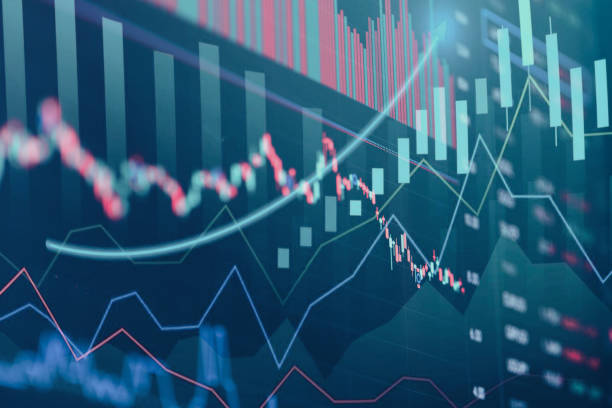Gaming Stocks Hit Hard
Global financial markets have been on edge in recent days following sudden changes to US trade policy. President Donald Trump’s introduction of sweeping tariffs — and a quick partial reversal — has led to sharp swings in stock prices. The gaming industry, like many others, has felt the impact and may face more uncertainty ahead.
Tariff Announcements Spark Sell-Off
The latest turmoil began on April 2, when President Trump announced a new round of trade tariffs, calling it “Liberation Day.” The plan included a 10% base tariff on all imports and much higher “reciprocal” tariffs on dozens of countries. This followed earlier tariffs in February on goods from Canada and Mexico.
Markets reacted quickly and negatively. The S&P 500, Dow Jones Industrial Average, and Nasdaq Composite all fell more than 5% for two straight days — the worst weekly performance since the early days of the Covid-19 pandemic.
Gaming stocks dropped alongside the broader market. Companies that operate casinos, like Wynn Resorts, MGM, and Caesars, saw their shares fall by as much as 10%. Gaming equipment suppliers were also hit hard due to concerns about international manufacturing and shipping. Online-focused companies performed slightly better, but most still declined between 5% and 6%.
| Date | Event | Market Impact | Gaming Industry Impact |
|---|---|---|---|
| Feb 2025 | Initial US tariffs on Canada & Mexico | Market uncertainty begins | Early signs of investor concern |
| April 2, 2025 | “Liberation Day” — Broad tariffs announced | Major indices fall 5%+ over two days | Casino & supplier stocks drop up to 10% |
| April 9, 2025 | 90-day tariff pause (except China) | Markets rebound; Nasdaq up 12% | Brief recovery in gaming stocks |
| April 10, 2025 | Market confidence fades | Indices fall another 2.5% | Ongoing volatility for gaming sector |
Markets Rebound After Trump Reverses Course
Just days later, on April 9, Trump unexpectedly paused the planned tariffs for 90 days — except for those aimed at China. As a result, markets surged. The Nasdaq rose 12% in a single day, and the Dow and S&P gained 8% and 9.5%, respectively.
“I did a 90-day pause for the people that didn’t retaliate,” Trump said, referring to countries that did not respond with their own tariffs. China, however, was not spared. Its tariff rate on US goods was increased to 145%, and Beijing responded with tariffs of 84% on US imports.
Despite the sharp rebound, markets fell again the following day, with major indexes closing down more than 2.5%.
Gaming Industry Faces Familiar Risks
The gaming industry is often affected during times of economic uncertainty, since it depends on consumers having extra money to spend. During the pandemic, retail casinos faced widespread closures. Even after reopening, they struggled with supply chain issues — a concern that could return if trade tensions continue. Joe Maloney, senior vice president at the American Gaming Association, said the group is closely watching developments. “We are engaged with multiple stakeholders in advocating for continued dialogue with key trade partners,” he told iGB.
Meanwhile, the Association of Gaming Equipment Manufacturers (AGEM), which tracks performance of global gaming suppliers, reported a 9.3% year-over-year decline in March. All 12 member companies posted stock losses, reflecting wider market concerns about tariffs and trade.
Analysts Unsure What Comes Next
Experts say it’s difficult to predict what will happen next. Lloyd Danzig, managing partner at Sharp Alpha Advisors, said short-term forecasting is especially tough right now.
One analyst, speaking anonymously, said many investors are playing it safe by selling gaming stocks until the outlook becomes clearer. “No one really knows how this will end,” the analyst said.
Another expert noted that tariffs could eventually affect how much consumers spend on entertainment — a key factor for gaming companies. However, long-term investment vehicles like gaming real estate trusts (REITs) may be less affected due to their steady business models. Some believe digital gaming companies may be more resilient, just as they were during the Covid pandemic. As more states have legalized online betting and igaming since 2020, consumers may turn to low-stakes online options rather than expensive casino visits.
“Placing a few wagers on a single game is seen as low-cost entertainment,” one source said. Danzig added that lottery and sports betting products tend to perform well in high-risk markets.
Unregulated Markets Add to the Challenge
Another growing concern is the rise of unregulated gaming platforms. Industry veteran Frank Fantini said grey market areas — including sweepstakes, skill-based games, and prediction markets — are gaining popularity and cutting into traditional operators’ business.
Typically for gaming investors, it’s sell now, figure out the answer later when we have some clarity.
He also pointed out that regional casinos may be better prepared for a downturn than large resort destinations like Las Vegas. “Regional markets rely less on tourism and big vacation spending,” he explained.
Fantini also questioned whether the current market reaction is purely economic, or partially emotional. “If you’re Canadian, do you really want to visit the US after Trump suggests you should be the 51st state?” he said.
Outlook Remains Uncertain
While some experts believe the stock market may have been due for a correction, the current volatility has made the gaming sector especially difficult to evaluate. Between trade tensions, unpredictable policy moves, and growing competition from outside the regulated industry, there are many reasons for caution.
For now, both investors and gaming companies are watching closely — and waiting for more clarity.









